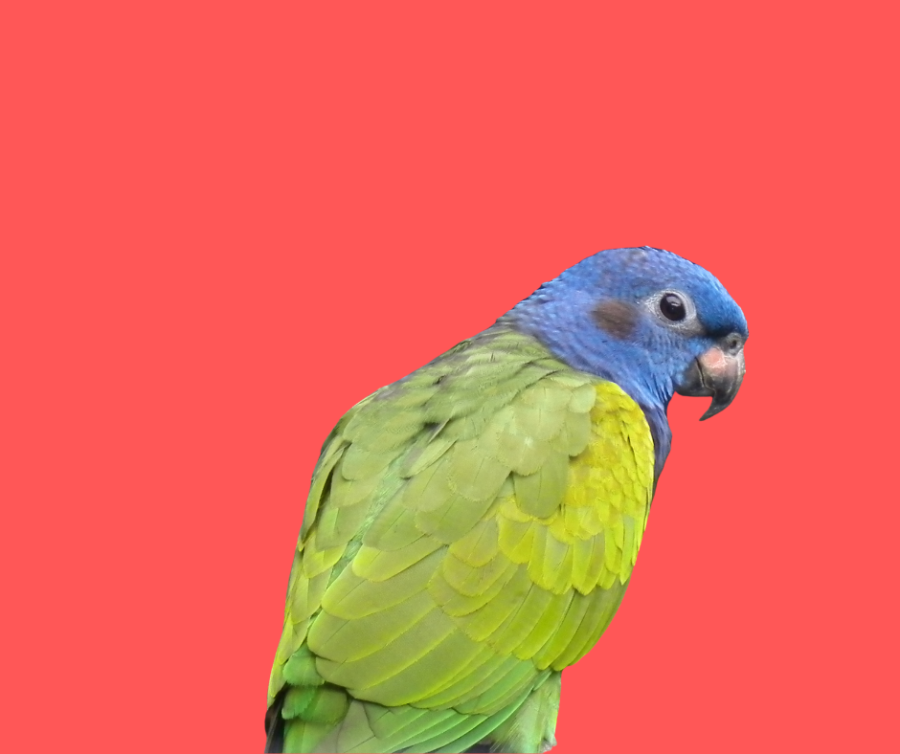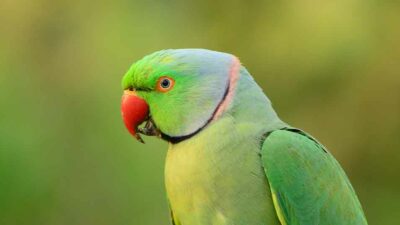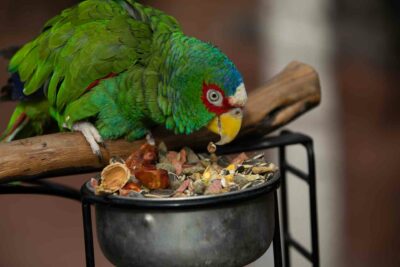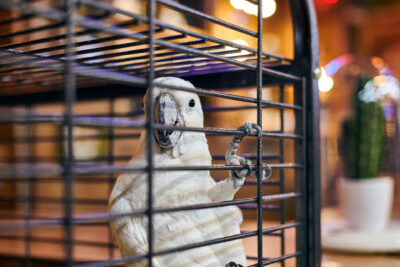
Pionus
Check out our Pionus parrot enrichment tool.
What Are Pionus Parrots?
Pionus parrots are found throughout Mexico and parts of Central and South America, and are comprised of 7 different types, of which the Blue-headed, Scaly-headed and White-capped are some of the most common. They are known for their distinct bare eye ring, a feature that gives them the permanent appearance of surprise. Unlike other birds such as Eclectus parrots, male and female Pionus parrots are not sexually dimorphic and look very similar. While not as popular as many other types of parrots, they are friendly and can make great starter pets for owners looking to see if having a bird is right for them.
What Makes Pionus Parrots a Good Pet?
Pionus parrots can live for up to 40 years, and while not always the most outgoing, can bond closely with multiple members of a family. They are also some of the best birds to have when noise is a concern, such as in small apartments or shared living spaces, as they are considered some of the most gentle and quiet species. While not the best talkers, they can be trained by a determined owner, and they often make a lot less of the high-pitched noises many would expect from other birds.
How Do You Care for Pionus Parrots?
While sometimes superficially confused with their South American cousin, the Amazon parrot, Pionus parrots bear some marked differences, and are often much milder and less demanding. Though they have warm and friendly personalities, Pionus parrots are less physically affectionate and tend to not favor hands-on play and a lot of touching from owners. While they are much less likely to bite than other parrots, care should be taken when introducing children to these parrots. However, with supervision many find Pionus parrots some of the best birds for children and families.
While often quieter and more reserved than other species, Pionus parrots are some of the friendliest companions, and are a great choice for beginners or those looking for more of a laid-back bird.
Follow us on Facebook and Instagram, and be sure to check out our other posts about birds or take our quiz to see which types of birds may be right for you!





